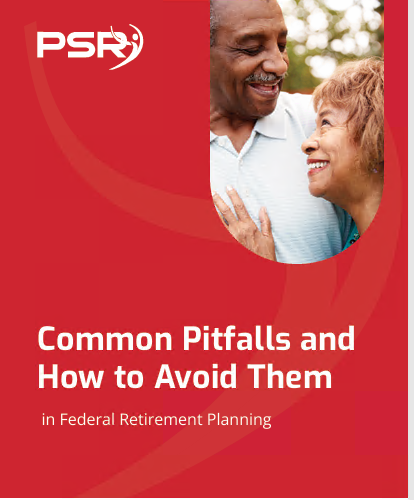Key Takeaways
-
Special category retirement ages can open the door to earlier pension payments, but missing key details could leave you with lower lifetime income.
-
Careful coordination with Social Security, health benefits, and TSP withdrawals is crucial if you want to avoid losing tens of thousands over your retirement.
Understanding Special Category Retirement Ages
- Also Read: Divorce and Your Federal Pension—What Happens When You Split Assets and How It Could Affect Your TSP
- Also Read: What Happens to Your Federal Benefits After Divorce? Here’s the Lowdown
- Also Read: The Best FEHB Plans for 2025: Which One Fits Your Lifestyle and Budget the Best?
Typically, the minimum retirement age (MRA) for special categories is 50 with at least 20 years of covered service, or any age after 25 years of service. This is significantly earlier than regular federal employees, whose MRA ranges from 55 to 57 based on birth year.
You must meet strict criteria for your service to qualify as “special category.” Not every position in law enforcement, firefighting, or air traffic control automatically counts, even if it feels demanding.
The Major Financial Implications
Retiring earlier sounds attractive, but if you are not strategic, it can erode your lifetime benefits. Here’s where the financial stakes get high:
-
Reduced TSP Balances: Withdrawing from your Thrift Savings Plan (TSP) earlier means you reduce the time your investments have to grow.
-
Health Insurance Costs: While you can keep Federal Employees Health Benefits (FEHB) in retirement, early retirement means longer years of paying premiums before Medicare eligibility at 65.
-
Pension Penalties: Leaving at the earliest eligibility age without maximizing your High-3 salary years could reduce your annuity by thousands annually.
-
Social Security Timing: Most special category retirees are eligible for the FERS Special Retirement Supplement (SRS) until age 62, but after that, you’re on your own until you claim Social Security.
Special Retirement Supplement: A Hidden Bridge
The Special Retirement Supplement (SRS) is designed to partially replace the Social Security benefit you lose by retiring early. It can be incredibly valuable between your special retirement age and 62. However, it comes with restrictions:
-
Earnings Limit: If you work in retirement, your SRS is subject to an earnings test starting immediately, with reductions for income above $23,480 in 2025.
-
No COLA: Your SRS payment remains frozen; it does not receive annual cost-of-living adjustments like Social Security benefits.
Ignoring the earnings cap could accidentally wipe out your entire SRS benefit, causing unexpected income gaps.
Impact of Early Retirement on Health Coverage
Although you remain eligible for FEHB as a retiree, remember that early retirement means covering your share of premiums longer before Medicare becomes primary at age 65.
In 2025, FEHB premiums continue to rise at an average of about 11% annually. If you retire at 50, you could pay 15 years’ worth of full employee-share premiums before Medicare helps reduce your costs.
Further, many plans coordinate better with Medicare than they do alone. If you are under 65 without Medicare, expect higher copays, coinsurance, and deductibles compared to those who have integrated coverage.
Choosing When to Tap Into TSP
Another critical decision relates to TSP withdrawals. Special category retirees have an advantage: you can access your TSP without the 10% early withdrawal penalty if you separate at age 50 or older.
However, tapping into your TSP too early can:
-
Deplete your long-term savings.
-
Lock in market losses if you withdraw during downturns.
-
Force you into higher tax brackets, especially if combined with pension and SRS payments.
Many public sector retirees adopt a strategy of minimizing withdrawals until required minimum distributions (RMDs) kick in at age 73, starting in 2025.
Social Security Claiming Strategies
You become eligible for Social Security retirement benefits at 62, but claiming early can reduce your monthly checks permanently by up to 30%. For special category retirees, this creates a dilemma:
-
Claiming at 62: Smooths the transition after SRS ends but results in smaller lifelong benefits.
-
Waiting until 67 or 70: Boosts monthly payments significantly, but requires bridging the income gap with TSP, part-time work, or savings.
Given inflation and healthcare costs rising steadily, waiting longer often results in tens of thousands more in lifetime Social Security benefits.
Pension Calculation Pitfalls
Your FERS annuity calculation is more favorable if you retire as a special category employee. The formula uses 1.7% of your “High-3” average salary for the first 20 years of service, then 1% thereafter.
But timing your retirement poorly can:
-
Lower your High-3 average if you leave just before peak earning years.
-
Miss out on critical sick leave conversion that could add months to your creditable service.
-
Reduce your survivor annuity options if you don’t properly elect coverage at retirement.
Mistakes That Cost Retirees Tens of Thousands
Certain common mistakes continue to hurt special category retirees financially:
-
Retiring without verifying “special coverage” status for all years worked.
-
Underestimating healthcare costs before age 65.
-
Claiming Social Security immediately without modeling lifetime income impacts.
-
Taking large TSP withdrawals during early retirement, resulting in higher taxes.
-
Failing to elect a survivor benefit, risking family financial hardship later.
Each mistake can cost tens of thousands across a typical 25-30 year retirement.
The Special 1-Year Window After Reaching 20 Years
An important feature exists for special category employees: once you complete 20 years of covered service, you can switch to a regular FERS-covered position without losing your enhanced retirement eligibility.
In other words, if you hit 20 years as a law enforcement officer at 45, you can move to another federal job and still retire under the special rules. This flexibility can be vital if you want to:
-
Reduce job stress.
-
Seek promotions in administrative roles.
-
Preserve health and longevity while maximizing final salary.
However, waiting too long to make the transition could jeopardize your eligibility, so careful timing is essential.
Survivor Benefits: Often Overlooked, Always Critical
When you retire, you must decide if you want to provide a survivor benefit for your spouse. If you decline this coverage, your spouse could lose FEHB eligibility after your death.
In 2025, survivor annuity elections reduce your own pension slightly, but this tradeoff often provides enormous value. Consider:
-
Maintaining health insurance continuity for your family.
-
Providing steady income to your spouse after your death.
-
Protecting against unexpected healthcare costs for your survivors.
Skipping this option might save a few hundred dollars monthly now but can cost your spouse hundreds of thousands over their lifetime.
Making a Successful Special Retirement Plan in 2025
A successful retirement under special category rules in 2025 requires a balanced strategy. You should carefully evaluate:
-
Your High-3 salary trajectory and sick leave balance.
-
When to separate to maximize annuity and minimize risks.
-
How long you can delay TSP withdrawals.
-
Whether waiting to claim Social Security will pay off.
-
How FEHB will fit into your budget until and after Medicare.
-
Survivor benefit elections.
Working with a licensed professional listed on this website can help you model these factors and avoid costly mistakes.
Preparing Now to Protect Tens of Thousands in Retirement Income
Getting special retirement right is about more than hitting 20 years and retiring at 50. If you want to maximize your lifetime income, you need to:
-
Build a written retirement plan.
-
Model “what-if” scenarios for pensions, TSP, and Social Security.
-
Plan for healthcare transitions, especially at age 65.
-
Understand taxes on your pension, TSP withdrawals, and Social Security.
Retiring under special category provisions can either save you—or cost you—more than you realize. To make sure you are positioned for success, contact a licensed professional listed on this website today to review your retirement strategy.











